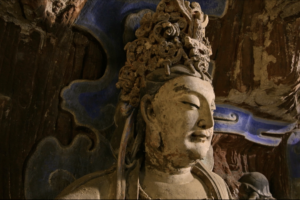
China-Uruguay Green Mobility Partnership Charges Ahead
Chinese electric vehicles and renewable tech drive Uruguay’s green transition, supported by new policies and a strategic partnership with China.

Federal Judge Allows Minnesota Immigration Operation to Proceed in 2026
Federal judge denies Minnesota’s emergency request to halt Operation Metro Surge, allowing the controversial immigration enforcement to continue amid protests.

Elena Rybakina Claims Australian Open 2026 Title in Thrilling Final
Kazakh tennis star Elena Rybakina wins 2026 Australian Open in three-set thriller against Aryna Sabalenka, securing her second Grand Slam title.

Guangsha Lions Defend CBA Lead with Gritty Win Over Zhejiang Rivals
Guangsha Lions secure hard-fought 68-58 victory against Zhejiang Golden Bulls, maintaining top spot in CBA standings with 19-3 record.

Chinese Winter Olympics Teams Arrive in Italy for 2026 Milano Cortina Games
Chinese winter sports teams arrive in Italy for 2026 Milano Cortina Olympics, with skaters and snowboarders beginning final preparations ahead of February 6 opening ceremony.

Heilongjiang’s Ice and Snow Economy Ignites Trillion-Yuan Growth in 2026
Heilongjiang Province transforms winter resources into a trillion-yuan economic engine through integrated sports, tech, and cultural innovation in 2026.
Uruguayan President Orsi Begins Key China Visit to Strengthen Ties
Uruguayan President Yamandu Orsi arrives in Beijing for a week-long state visit aimed at boosting economic and diplomatic cooperation with China.

Trump Claims Iran in Talks with US Amid Military Buildup
U.S. President Trump states Iran is negotiating with the U.S. while hinting at military options, as Gulf allies express uncertainty over American plans.

U.S. and Russia Hail ‘Constructive’ Ukraine Talks in Florida
U.S. and Russian officials describe recent Florida talks on Ukraine as ‘constructive,’ though details remain undisclosed amid ongoing tensions.

Venezuela, U.S. Envoy Hold Diplomatic Talks to Address Bilateral Ties
Venezuela and the U.S. engage in diplomatic talks to resolve differences and establish a bilateral roadmap, emphasizing mutual respect and international law.

5 Injured in Louisiana Mardi Gras Parade Shooting; 3 Suspects Detained
Five injured, including a child, in shooting at Louisiana Mardi Gras parade; three suspects detained as investigation continues.

Silent March in Copenhagen Reflects Strained US-Denmark Ties
Danish veterans stage silent march to US Embassy after memorial flag removal, highlighting tensions over Afghanistan sacrifices and Greenland sovereignty concerns.

SpaceX and China Race to Build Orbital AI Infrastructure by 2026
SpaceX’s plan for a million-satellite AI network faces competition from China’s state-backed space cloud initiative, reshaping global tech dominance in 2026.

CGTN Poll Reveals Deepening U.S. Federal-State Tensions Amid Violence
A CGTN poll reveals 92% of global respondents see U.S. trapped in cycles of violence and political polarization, with federal-state clashes intensifying public safety concerns.

British PM Stresses Engagement in Shanghai on 2026 China Visit
British PM Keir Starmer emphasizes mutual trust through engagement during his Shanghai visit, leading a major business delegation and highlighting cultural ties.

Uruguay’s President Orsi Visits China to Strengthen Strategic Partnership, Belt and Road Ties
Uruguayan President Yamandu Orsi’s 2026 state visit to China aims to deepen Belt and Road cooperation and celebrate 38 years of diplomatic ties, amid growing economic and regional collaboration.

Addis Ababa’s Urban Revamp Boosts Livability and Tourism
Addis Ababa’s Corridor and Riverside projects transform the city, enhancing livability and attracting tourists as of 2026.

Xi Jinping Outlines Vision for China’s Financial Strength in Qiushi Journal Article
President Xi Jinping’s upcoming Qiushi Journal article outlines China’s roadmap for developing financial strength with Chinese characteristics, set to influence 2026 economic strategies.

Tunisia Extends State of Emergency Through 2026 Amid Security Concerns
Tunisia extends nationwide state of emergency through 2026, maintaining security measures first imposed after 2015 terrorist attack. Decree grants expanded government powers.

CMG Nears Final Prep for 2026 Spring Festival Gala with Multi-City Rehearsals
China Media Group completes third rehearsal for 2026 Spring Festival Gala, featuring debut sub-venues in four cities and a vibrant cultural showcase.













